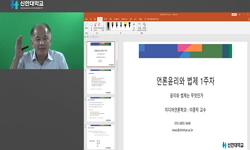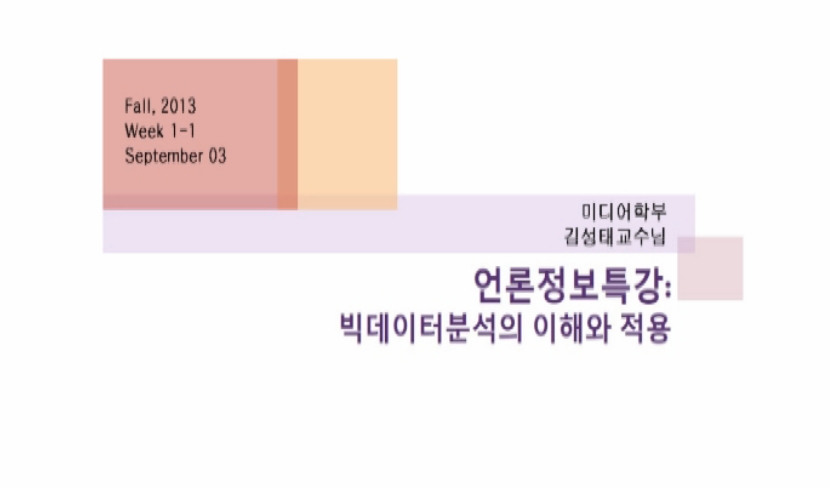Recently the public's interest in 'Investigative Reporting' and 'Computer Assisted Reporting(CAR)' is rising. A lot of audience of mass communication want the press to go beyond the limits of the present objective reporting toward further investigativ...
http://chineseinput.net/에서 pinyin(병음)방식으로 중국어를 변환할 수 있습니다.
변환된 중국어를 복사하여 사용하시면 됩니다.
- 中文 을 입력하시려면 zhongwen을 입력하시고 space를누르시면됩니다.
- 北京 을 입력하시려면 beijing을 입력하시고 space를 누르시면 됩니다.
한국 언론의 탐사보도(Investigative Reporting) 활성화를 위한 CAR(Computer Assisted Reporting) 연구 = (An) analysis of CAR(Computer Assisted Reporting) for activating investigative reporting in Korean journalism
한글로보기https://www.riss.kr/link?id=T9919485
- 저자
-
발행사항
부산 : 경성대학교 멀티미디어정보예술대학원, 1999
-
학위논문사항
학위논문(석사) -- 경성대학교 멀티미디어정보예술대학원 , 언론홍보학과 , 1999. 8
-
발행연도
1999
-
작성언어
한국어
- 주제어
-
KDC
070.4204 판사항(4)
-
발행국(도시)
부산
-
형태사항
ⅵ, 141p. : 삽도 ; 26cm.
-
일반주기명
참고문헌: p. 126-131
- 소장기관
-
0
상세조회 -
0
다운로드
부가정보
다국어 초록 (Multilingual Abstract)
A lot of audience of mass communication want to know some practical information about the effects of their surrounding environments. Investigative reporting is a desirable way of getting closer to the realistic reports of the essence of what's happening and, eventually, meeting their demand.
The role and necessity of computers are great in journalism in this revolutionary age of information communications. Computers are the only way available for the efficient collection and analysis of the floods of information. For long-term investigative reporting dealing with massive data and information, in particular, CAR(computer assisted reporting) is a must.
In this respect, it might be important to examine the Korean reporters' attitude to CAR and investigative reporting as well as some measures to activate such reporting. All 209 reporters from 22 domestic papers and broadcasting stations answered the questionnaire made by the researcher, and the results are as follows:
1. The Korean journalists at large strongly feel the necessity of investigative reporting and CAR. In actuality, however, investigative reporting to lead to the improvement of social systems is not active. Also scarce is the various use of computers in data collection and analysis. The vital cause for this phenomenon is that they are accustomed to the way they used to be under the past authoritarian regimes. So they are not used to reporting to reveal the class of power's wrongdoings. Their understanding of investigative reporting is poor, too.
2. Most of the Korean reporters do use computers in their reporting activities, and that very limitedly. According to this survey, 90% of them use computers more than a little bit and about 60% operate computers above 30 minutes a day. But their data collection activities are merely an elementary level of using Internet and PC communications. They have a long way to go to the professional level of building data bases of reporting materials or analyzing lots of data by way of processing programs.
3. The Korean reporters feel their inactive and insufficient use of computers comes from their lack of computer-utilizing ability, the poor internal computer network system, scanty information accessible to on-line news gathering, and the tendency of some organizations and companies to avoid information opening. In short, reporters need to make best use of computers but they lack the ability to collect and analyze information by computer. Then, not enough data bases and the unwillingness to make public some information are surely the main hurdles to the smooth way of CAR.
4. The Korean journalists, therefore, believe even more public information should be opened and that the job of making data, bases of organizations and firms should not take too much time. Each newspaper or broadcasting company, in addition, should improve its own computer network. The free use of public information is absolutely necessary to satisfy the people's right to know. Vigorous CAR results in vigorous investigative reporting, and digitalizing information is essential for this purpose. The culture of information opening ought to change in this era of information communications.
What matters, then, is how to build up such favorable environments. Each mass com company should provide reporters the best conditions of advanced information communications technology so they can do investigative reporting. In this way can journalism be true to its own mission of reporting rightly and improving society.
Reporters themselves need to upgrade their ability to use computers, scanning the sea of information and serving as the so-called "watch dog" of human rights and natural environments.
The government should support the free channels of more and more public information. When the people's right to know is properly met, a more democratic society can be created. Citizens' bodies have to back up healthy journalism to prevent power corruption.
Furthermore, all information of society should be made avaliable as data bases, if possible. Active computer use in this information age will sharpen the competitive edges of both individuals and the nation. In sum, by making effective use of CAR in investigative reporting, the Korean journalism will go a step further to quality reporting.
Recently the public's interest in 'Investigative Reporting' and 'Computer Assisted Reporting(CAR)' is rising. A lot of audience of mass communication want the press to go beyond the limits of the present objective reporting toward further investigative reporting.
A lot of audience of mass communication want to know some practical information about the effects of their surrounding environments. Investigative reporting is a desirable way of getting closer to the realistic reports of the essence of what's happening and, eventually, meeting their demand.
The role and necessity of computers are great in journalism in this revolutionary age of information communications. Computers are the only way available for the efficient collection and analysis of the floods of information. For long-term investigative reporting dealing with massive data and information, in particular, CAR(computer assisted reporting) is a must.
In this respect, it might be important to examine the Korean reporters' attitude to CAR and investigative reporting as well as some measures to activate such reporting. All 209 reporters from 22 domestic papers and broadcasting stations answered the questionnaire made by the researcher, and the results are as follows:
1. The Korean journalists at large strongly feel the necessity of investigative reporting and CAR. In actuality, however, investigative reporting to lead to the improvement of social systems is not active. Also scarce is the various use of computers in data collection and analysis. The vital cause for this phenomenon is that they are accustomed to the way they used to be under the past authoritarian regimes. So they are not used to reporting to reveal the class of power's wrongdoings. Their understanding of investigative reporting is poor, too.
2. Most of the Korean reporters do use computers in their reporting activities, and that very limitedly. According to this survey, 90% of them use computers more than a little bit and about 60% operate computers above 30 minutes a day. But their data collection activities are merely an elementary level of using Internet and PC communications. They have a long way to go to the professional level of building data bases of reporting materials or analyzing lots of data by way of processing programs.
3. The Korean reporters feel their inactive and insufficient use of computers comes from their lack of computer-utilizing ability, the poor internal computer network system, scanty information accessible to on-line news gathering, and the tendency of some organizations and companies to avoid information opening. In short, reporters need to make best use of computers but they lack the ability to collect and analyze information by computer. Then, not enough data bases and the unwillingness to make public some information are surely the main hurdles to the smooth way of CAR.
4. The Korean journalists, therefore, believe even more public information should be opened and that the job of making data, bases of organizations and firms should not take too much time. Each newspaper or broadcasting company, in addition, should improve its own computer network. The free use of public information is absolutely necessary to satisfy the people's right to know. Vigorous CAR results in vigorous investigative reporting, and digitalizing information is essential for this purpose. The culture of information opening ought to change in this era of information communications.
What matters, then, is how to build up such favorable environments. Each mass com company should provide reporters the best conditions of advanced information communications technology so they can do investigative reporting. In this way can journalism be true to its own mission of reporting rightly and improving society.
Reporters themselves need to upgrade their ability to use computers, scanning the sea of information and serving as the so-called "watch dog" of human rights and natural environments.
The government should support the free channels of more and more public information. When the people's right to know is properly met, a more democratic society can be created. Citizens' bodies have to back up healthy journalism to prevent power corruption.
Furthermore, all information of society should be made avaliable as data bases, if possible. Active computer use in this information age will sharpen the competitive edges of both individuals and the nation. In sum, by making effective use of CAR in investigative reporting, the Korean journalism will go a step further to quality reporting.
목차 (Table of Contents)
- 목차 = ⅰ
- 제1장 서론 = 1
- 제1절 연구 목적 = 1
- 제2절 연구 문제 및 연구 방법 = 4
- 1. 연구 문제 = 4
- 목차 = ⅰ
- 제1장 서론 = 1
- 제1절 연구 목적 = 1
- 제2절 연구 문제 및 연구 방법 = 4
- 1. 연구 문제 = 4
- 2. 연구 방법 = 7
- 제2장 탐사보도와 CAR에 대한 이론적 고찰 = 9
- 제1절 탐사보도의 개념과 현황 = 9
- 1. 탐사보도의 등장 배경 = 9
- 2. 탐사보도의 정의 = 13
- 3. 한국 언론의 탐사보도 실태 = 21
- 제2절 CAR의 개념과 현황 = 29
- 1. CAR의 등장 배경 = 29
- 2. CAR의 정의 = 35
- 3. 한국 언론의 CAR 실태 = 38
- 제3절 탐사보도에 있어서 CAR의 활용 = 43
- 1. 탐사보도에 있어서 CAR의 필요성 = 43
- 2. 탐사보도에 있어서 CAR의 활용 정도 = 47
- 제3장 한국 기자들의 탐사보도와 CAR 인식도 및 활용도 = 50
- 제1절 조사의 개요 = 51
- 1. 조사 대상 및 조사 절차 = 51
- 2. 설문지의 구성 및 자료의 분석 = 53
- 3. 조사 대상자의 인구사회학적 특성 = 55
- 제2절 탐사보도에 대한 의식과 경험 = 59
- 1. 탐사보도의 필요성 = 59
- 2. 탐사보도의 경험 = 60
- 제3절 CAR에 대한 의식과 경험 = 61
- 1. CAR의 필요성 = 61
- 2. CAR의 활용도 = 63
- 3. CAR 활용 도구 = 70
- 제4절 탐사보도 과정에서 CAR의 활용도 = 79
- 1. 탐사보도 과정에서 CAR 경험 = 79
- 2. 탐사보도 과정에서 활용한 CAR 도구 = 80
- 제5절 CAR 활용의 저해 요인 = 84
- 1. 언론사 및 기자 자체의 내부적 요인 = 84
- 2. 정부 및 사회 여건 등 외부적 요인 = 87
- 3. CAR 활성화를 위한 방안 = 89
- 제4장 한국 언론의 CAR 활용 탐사보도 사례와 한계 및 대책 = 91
- 제1절 CAR과 CAR을 활용한 탐사보도에 대한 관심도 = 91
- 1. CAR에 대한 관심도 = 91
- 2. CAR을 활용한 탐사보도에 대한 관심도 = 94
- 제2절 CAR을 활용한 탐사보도 사례 분석 = 95
- 1. 사례 연구의 방법 및 절차 = 95
- 2. CAR을 활용한 탐사보도 분야 및 단계와 도구와 애로점 = 99
- 3. CAR을 활용한 탐사보도 모델 연구 = 101
- 제3절 한국 언론의 CAR 활용 탐사보도의 한계와 대책 = 109
- 1. 탐사보도를 위한 CAR 활용의 한계 = 109
- 2. CAR을 활용한 탐사보도 활성화 대책 = 116
- 제5장 결론 = 121
- 참고문헌 = 126
- Abstract = 132
- 부록 = 136












